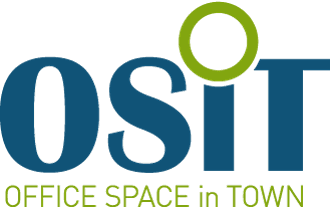Navigating the WeWork Aftermath: Lessons on Business Resilience
This highlights the cyclical nature of the business system. After all, when a business operating in a successful industry faces bankruptcy or financial distress, it paves the way for new, successful companies to emerge. Consider the fate of Blockbuster for example. The once dominant video rental chain failed to adapt its business practices to the digital age and changing consumer preferences. This gave opportunities for competitors, such as Netflix, which Blockbuster had the opportunity to buy, to come in and capitalise on this lapse, disrupting the industry. With its subscription-based streaming service, Netflix revolutionised the way people consume media, eventually leading to the decline and bankruptcy of Blockbuster.
While not a perfect comparison to WeWork as, after all, WeWork’s demise was driven by its flawed business model rather than external pressures, it does have some instructive takeaways. Firstly, businesses that fail to align with consumer and market trends are destined to face their own demise. Secondly, in markets characterised by high demand, there will always emerge innovative companies capable of disrupting the market. Thirdly, competitors will seize the opportunity to capitalise on the bankruptcy or failure of a company, aiming to profit from the vacuum left in the market.
Recent moves by Industrious and IWG to potentially take over some of WeWork’s locations underscores the dynamism of the market. These decisions not only validate the points above but also illustrate that contrary to some commentator's beliefs, there is still demand for flexible office spaces. The conversation about the future of our working environment indicates a departure from pre-pandemic norms. Flexible and serviced workspaces are continuing to grow in popularity due to the permanency of hybrid working policies. For instance, this year saw many positive developments, such as more than two-thirds of London’s flexible office spaces reaching 80% occupancy, indicating the enduring appeal of the market.
In our own Office Space in Town buildings, reaching 92.4% occupancy and our highest-ever average desk rate, we witness firsthand the surging interest in flexible workspaces. Further, we are continuing to onboard new clients, who are eager to pursue the benefits of a move towards flexible workspaces for their business operations. WeWork’s missed opportunity to take, as its co-founder noted, “advantage of a product that is more relevant today than ever before”, emphasises the critical importance of a relevant business model.
The lesson from WeWork is clear: a resilient business model, not just market demand, dictates a company’s success. In the evolving era of remote work, companies must heed this lesson, embracing adaptability and innovation to thrive in a dynamic professional landscape. The future belongs to those who can navigate change and capitalise on the growing appeal of flexible workspaces.
